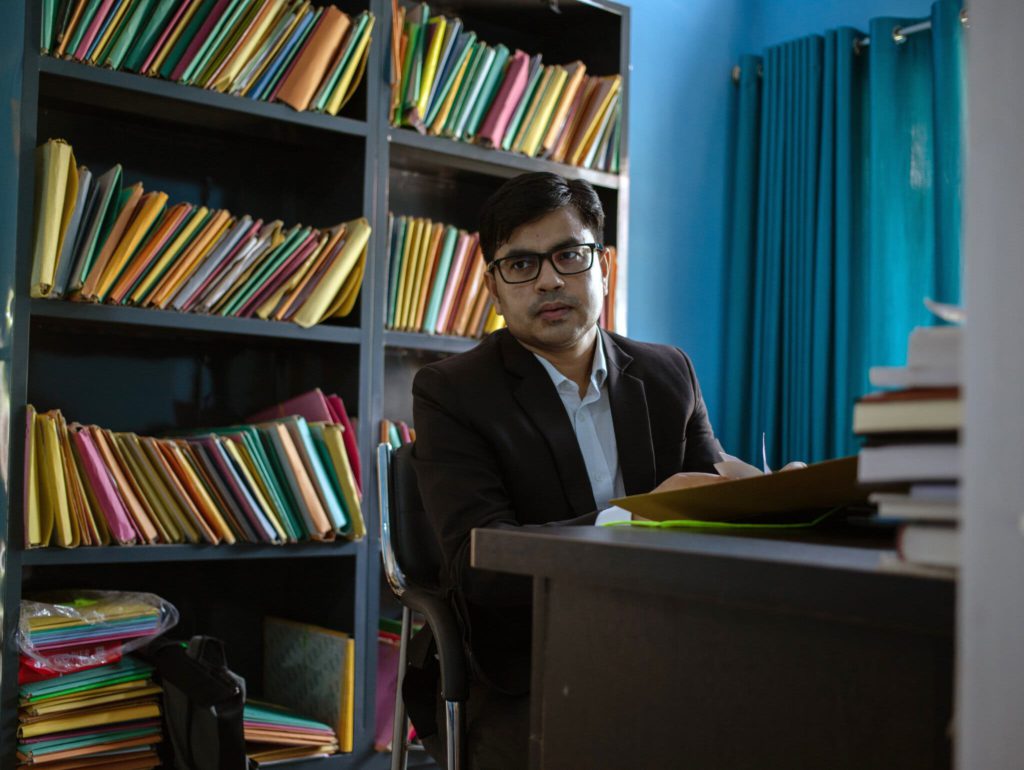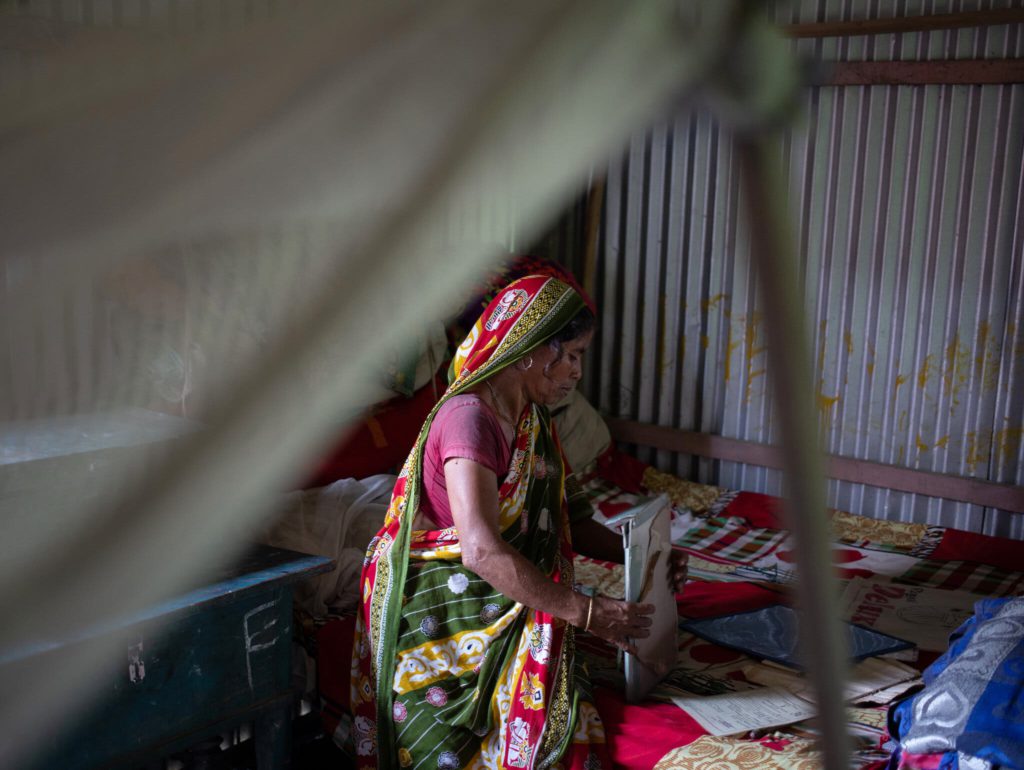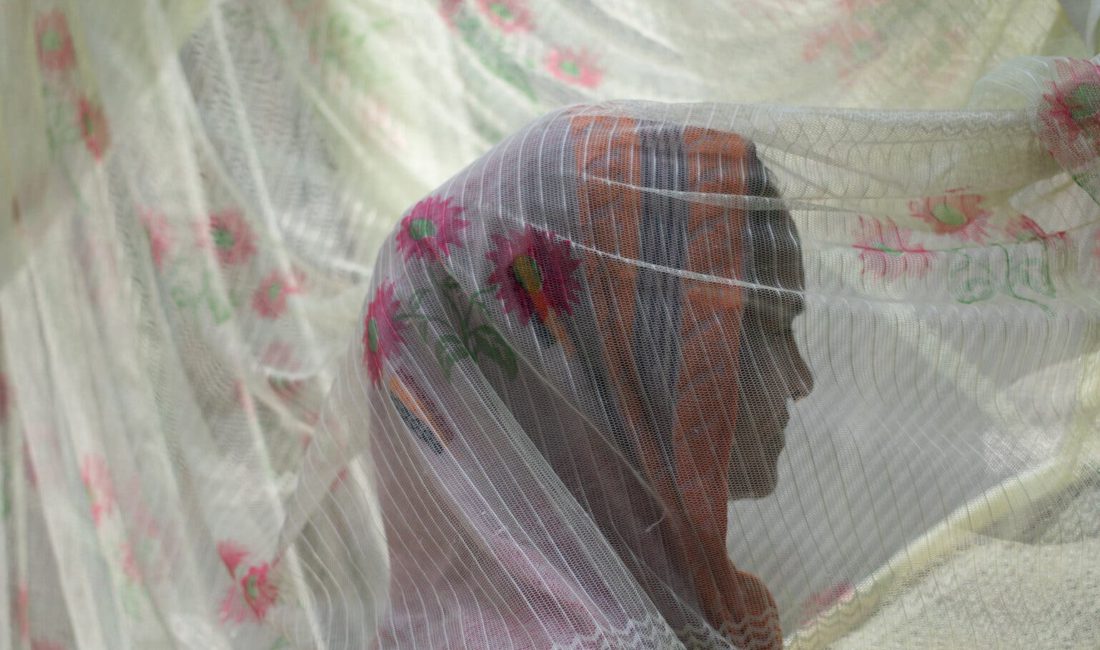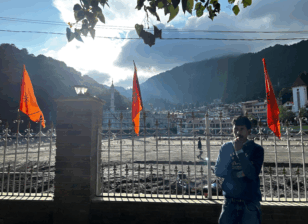NYTimes: ‘They Are Manufacturing Foreigners’: How India Disenfranchises Muslims
Persecution in a remote Indian province spawned Modi’s new draconian citizenship law.
One November morning in 2015, a 37-year-old woman named Sahera Khatun received a notice summoning her to a foreigners’ tribunal. Sahera was living at the time in Sukharjar, a riverine village in the remote Indian state of Assam. She had moved there from Morabhaj, where she was born, after her marriage to a daily wage laborer named Amir. Sahera had given birth to five children in Sukharjar and seen nothing of the world beyond these two villages and the temperamental rivers that regularly inundate huts and farmland there. Yet the summons required her to prove that she was a citizen of India and not an illegal migrant from the neighboring country of Bangladesh. If she failed to make an appearance, the tribunal would declare her a foreigner and arrest her.
On the appointed day, Sahera and her husband made the two-hour journey in a crowded tempo to Foreigners’ Tribunal No.6, in the town of Barpeta. It was the first of many such appearances. Over the years, with the help of lawyers working pro bono, Sahera submitted a series of documents, including land records, copies of electoral lists and a marriage certificate. She was cross-examined by the official, as was the chief of the village she lived in.
In June 2018, the tribunal delivered its verdict. Sahera, on her lawyer’s advice, stayed away, as she was likely to be detained if the verdict went against her. She was unable to state when she was born, at what age she married or how old her parents and grandparents were when they first voted, the tribunal official noted. The documents she submitted were considered inadequate and untrustworthy, as was the testimony of the village chief. The tribunal ordered the police to take her into custody as an “internee” until she could be deported.
I met Sahera this year in the village where she is now hiding. It is a fertile area an hour’s drive from Barpeta town, with huts built of corrugated tin looking down on fields lush with rice, corn, potatoes and garlic. In the monsoons, the nearby Brahmaputra River — which originates in Tibet to the north and makes its way through Assam and into Bangladesh to the south — floods the fields. The tin shacks, blazing hot in the summer months, are easy to dismantle should the river rise high enough to inundate the embankments on which they are erected.
As I was led into a room with a dirt floor, neighbors began to crowd in, faces taut with wariness. A folder thick with papers lay on a plastic table. Sahera’s lawyer had appealed the tribunal decision with the high court in Guwahati, the seat of government in Assam. But the high court upheld the tribunal verdict, and the case of Sahera Khatun v. the Union of India will now have to be heard at the Supreme Court in New Delhi. Sahera is already a fugitive. If the Supreme Court also rules against her, no one can say what might happen to her.
The neighbors waited outside while I spoke to Sahera and her husband. Amir did most of the talking, speaking softly in Bengali. Sahera, her face turned away from me, wept silently under the hood of her sari. Amir, whose own citizenship was not in dispute, told me that he and Sahera knew no other country than the one where they lived and where their parents lived before them. They had migrated to this village from nearby Sukharjar because, like the village where Sahera grew up, it had been eroded by the Brahmaputra. It was a phenomenon so common that there was a word for people displaced by the river: nodibhongo, or, literally, “broken by the river.”
Neither Amir nor Sahera had received any schooling, and they did not know how to read or write. Amir worked delivering goods on a pushcart until he fractured his left leg. Now he sold vegetables in the nearby market, worrying about Sahera, who had lost her appetite and been unable to sleep ever since the tribunal notice arrived. I pointed at the documents on the table, to Sahera’s thumb impressions prominent among the endless text and legal seals. “We don’t even understand what’s written in there,” he said.
Sahera is one of around two million people in Assam who have been rendered stateless. Many are Bengali Muslims, a vast majority of them marginal farmers and daily wage laborers, who have nonetheless become the focus of a sustained campaign of disenfranchisement by Prime Minister Narendra Modi’s Hindu nationalist government, led by the Bharatiya Janata Party or B.J.P. Portrayed as illegal migrants from neighboring Bangladesh, they have become mired in a Kafkaesque system of accusations, trials and imprisonment, which spawned a nationwide citizenship act that has been compared to Nazi Germany’s Reich Citizens Law.
The Hindu right has long identified border regions like Kashmir and Assam as places to raise the specter of a Muslim threat. But while Kashmir has often been used to conjure the danger of secession, Assam represents, in the rhetoric of Hindu extremists, a more insidious menace — that of a steady, cross-border influx of Muslims guaranteed to make Hindus a persecuted minority in their own country. Assam is largely peripheral to historic Indian civilizations as well as to modern India — Guwahati lies more than 1,000 miles east of Delhi, with China and Myanmar far closer. Yet Assam has become central to the question of who is — and who is not — entitled to be a citizen in India.
In July 2018, Assam published a National Register of Citizens that was intended to be a definitive record of citizenship. Any resident of Assam whose name did not appear on it would have to go before a foreigners’ tribunal to plead their case: They would have to prove that they were born in Assam before 1971, when Bangladesh gained independence from Pakistan and refugees flooded into the state, or that they were the children of such a person. If the tribunal declared them foreigners, their only recourse was the courts. The “national” in the N.R.C. is, however, misleading. It applies only to the state’s multiethnic population of some 33 million, a third of whom are Muslim, although Modi threatened to create a similar citizens’ register for all of India. When the initial version of the N.R.C. was released, the names of nearly four million people were left off and their citizenship put in question. Amit Shah, then the B.J.P.’s president and Modi’s able lieutenant, declared that these ghuspetiyas — a Hindi word for “infiltrators,” widely understood to be a derogatory code word for Bengali-speaking Muslims — would be deported to Bangladesh.
As those omitted from the N.R.C. wrestled with how to prove they belonged in Assam, a “final” version of the list was produced in August 2019, this time excluding 1.9 million people. But the B.J.P. discovered that it had run into a snag. The process of creating the lists had been expensive, confusing and traumatic — people killed themselves after discovering they were not on them — and prompted special rapporteurs at the United Nations to raise questions about their discriminatory nature. Of the nearly two million people potentially rendered stateless, many were Bengali Hindus as well as Bengali Muslims. This posed a problem for the B.J.P., which regarded Bengali Hindus, a significant group in the rest of India and a majority population in the Indian state of West Bengal, as essential to their majoritarian nation of one billion Hindus.
By December 2019, the B.J.P. had passed a nationwide law to get around this problem — the Citizenship Amendment Act. The C.A.A. would allow Hindu, Christian, Jain, Buddhist, Sikh and Parsi migrants from Afghanistan, Pakistan and Bangladesh to claim Indian citizenship and, in theory, allow Bengali Hindus excluded from the N.R.C. to apply for citizenship too. Pointedly, the only major religious group in the region excluded by the C.A.A. were Muslims.
This spring Assam held state elections, with the B.J.P. campaigning fiercely to maintain its majority coalition in the state legislature. A win would mean even more Bengali Muslims swept into N.R.C.-like dragnets. Already, the future for those caught in what has been described as the largest mass disenfranchisement project of the 21st century looks bleak. The foreigners’ tribunal declaring Sahera an illegal migrant had ordered her to be kept as an “internee” until she could be “deported” or “pushed back” to “her specified territory,” but Bangladesh refused to accept Assam’s mass of newly rejected Bengalis as its citizens. They might not be wanted in Assam and in Modi’s India, but there was no place they could go.

Aman Wadud, a lawyer representing people rendered stateless, in his office in Guwahati.Credit…Zishaan A Latif for The New York Times
I first came to know of Sahera’s plight at the law offices of Aman Wadud in Guwahati. It was February, and anxieties about the coronavirus pandemic had, for the moment, given way to a fever pitch of anticipation about the upcoming state elections. A pink-and-blue bungalow sitting in a back lane off a large, green pond, Wadud’s office gives off the sleepy, relaxed air of old Guwahati, a welcome contrast with the bumper-to-bumper traffic and construction dust that choke the main thoroughfares. It is here, with something of the convivial atmosphere of a college dorm, that Wadud and his fellow lawyers work on representing the people rendered stateless.
In addition to the 1.9 million people left out of the N.R.C. list, some 150,000 people had already been declared illegal migrants by the system of foreigners’ tribunals. Established in 1964 to hear the cases of those accused of being undocumented migrants, the tribunals went into overdrive during the years the N.R.C. lists were being prepared. There may be an overlap between those left off the N.R.C. lists and those processed through the tribunals, but because the records are separate, it is impossible to say. And more than one agency is involved in accusing people of being foreigners. Since the late 1990s, the election commission has been examining old voter records in Assam and marking out individuals as “Doubtful” or “D” voters. The names of these D voters are passed onto the border police, which in turn sends them to the tribunals. The border police, which has officers in local police stations, is tasked with identifying illegal migrants and carries out its own random checks on people. Those it considers to be lacking sufficient proof of citizenship are given a summons to appear at the tribunals.
The burden of proof is always on the accused, and the tribunals, run by lawyers appointed and paid handsomely by the government, are notorious for their hostility to the supplicants. The only point of clarity is that in a state where the dominant language, culture and much of the upper bureaucracy is Assamese, a majority of those excluded are Bengali speakers, with particular hostility reserved for those who, like Sahera, Amir and Wadud himself, are Bengali Muslims.
Wadud, who is 35, has an intense, scholarly air until he begins to talk about cricket. He also happens to be among the exceptions in a community that — settled in Assam’s riverine lowlands as farmers by the British in the 19th century — is largely impoverished and undereducated. His father was a professor of Arabic, and Wadud himself studied law in Bangalore and interned in Delhi with the renowned civil rights lawyer Prashant Bhushan. Yet he recalled, with something between distress and bemusement, being called a traitor when going to high school in Guwahati. “I would pray for an India win in cricket,” he said. “I had sketched an Indian flag on my arm. But to some people, I was still a Bangladeshi, a foreigner.”

Jahida Begum with important documents that prove citizenship. Her son-in-law, Faizal Ali, committed suicide after being excluded from the National Register of Citizens.Credit…Zishaan A Latif for The New York Times
Wadud returned to Assam from Delhi in October 2013, in the wake of a clash between Bengali Muslims and Bodos — one of dozens of tribes that make up Assam’s multiethnic society. The violence, which took place over two months in the summer of 2012, left at least 78 people dead and more than 300,000 in relief camps, the largest such displacement in post-partition India. In May 2014, Bengali Muslims were attacked by suspected Bodo militants near Manas National Park. Women and children were shot as they fled toward a river; people were thrown into huts that had been set ablaze. Survivors said that among their masked attackers were park rangers whom they recognized from their daily interactions, but the B.J.P., rapidly rising in Assam as a political force, portrayed the events as a clash between encroaching Bangladeshis and indigenous Bodos.
“There is absolute impunity when Bengali Muslims are killed,” Wadud said, recalling his work setting up legal-aid camps in the area around Manas. He accompanied witnesses to court in Guwahati, but no convictions have yet resulted from the ensuing trials. Soon after, he was inundated with requests to take on foreigners’ tribunal cases. “Every ethnic and religious group in Assam migrated here at some point in history,” he said. “But it is only the Bengalis, who traveled upriver, who are seen as outsiders.”
Those who are declared foreigners find the legal process incomprehensible, Wadud said. Many of the accused are women, who typically marry young and are unable to inherit property. Without education, possessions or a life outside the home, they have almost nothing in the way of documents to prove their identity: no school certificates or voting records or property deeds. This was probably why Sahera found herself in the cross hairs of almost every investigating body; marked as a D voter and judged a foreigner by a tribunal, her name never appeared in the N.R.C.




